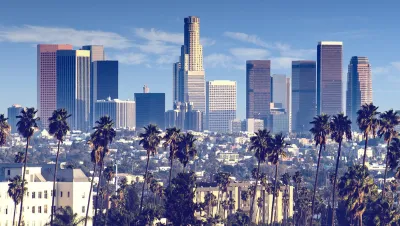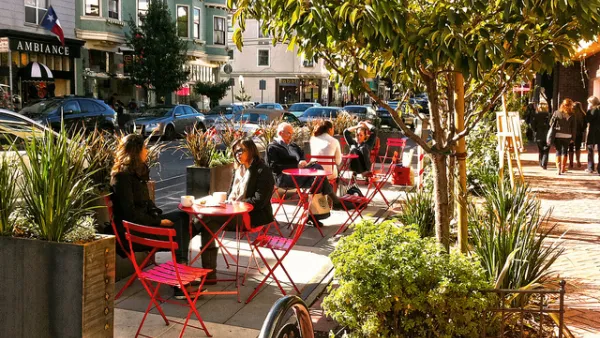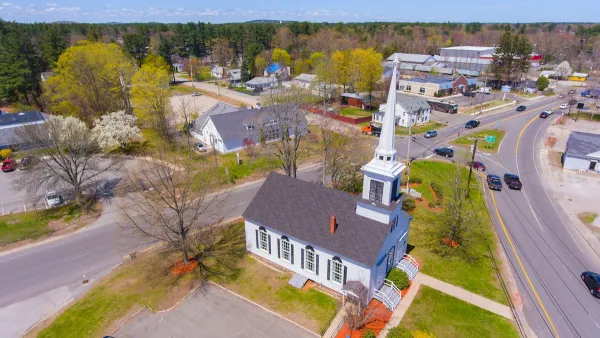In famously car-centric Los Angeles, developers and city officials are changing the way they view parking space, opting instead to allocate the space to more effective uses.

With the pandemic forcing cities and businesses to repurpose parking for uses like outdoor dining and seating, writes Mark Hallum, policymakers and developers are rethinking the value of parking spaces and potential alternate uses for surface parking and parking structures. Meanwhile, "emerging business models and technology, from electric vehicle charging stations to ghost kitchens, have made the humble parking stall, a mere 300 square feet, more useful, and more contested, space."
In a quote in the article, Michael Manville, an associate professor of urban planning at the University of California, Los Angeles, says, "The pandemic gave everyone this very vivid illustration of how much space, even in very vibrant parts of their area, is devoted to surface parking." Hallum mentions some high-profile garage redevelopments that illustrate the possibilities for adapting parking to other uses.
"In downtown L.A., where adaptive reuse and residential construction has boomed in recent years — a city ordinance allows builders to get properties to market quicker, and does not require them to add net new parking — Markwood’s 9th & Hill turned the historic May Company Garage into a high-end office building with a location of the ultra-high-end grocery chain Erehwon. In Santa Monica, the city is pushing to transform a downtown parking structure into up to 150 units of affordable housing, a plan that has drawn unexpectedly fierce local sentiment in favor of protecting the outdated concrete structure."
Hallum calls parking "a long-term infill opportunity" that could change the car-centric character of Los Angeles, writing that, while the built environment of L.A. and its relationship with cars and parking won't change overnight, "the last few years did provide brief glimpses of a future where car-centric infrastructure is reimagined and redeveloped, which may be enough to catalyze a significant real estate shift."
FULL STORY: Los Angeles Rethinks Parking

Analysis: Cybertruck Fatality Rate Far Exceeds That of Ford Pinto
The Tesla Cybertruck was recalled seven times last year.

National Parks Layoffs Will Cause Communities to Lose Billions
Thousands of essential park workers were laid off this week, just before the busy spring break season.

Retro-silient?: America’s First “Eco-burb,” The Woodlands Turns 50
A master-planned community north of Houston offers lessons on green infrastructure and resilient design, but falls short of its founder’s lofty affordability and walkability goals.

Test News Post 1
This is a summary

Analysis: Cybertruck Fatality Rate Far Exceeds That of Ford Pinto
The Tesla Cybertruck was recalled seven times last year.

Test News Headline 46
Test for the image on the front page.
Urban Design for Planners 1: Software Tools
This six-course series explores essential urban design concepts using open source software and equips planners with the tools they need to participate fully in the urban design process.
Planning for Universal Design
Learn the tools for implementing Universal Design in planning regulations.
EMC Planning Group, Inc.
Planetizen
Planetizen
Mpact (formerly Rail~Volution)
Great Falls Development Authority, Inc.
HUDs Office of Policy Development and Research
NYU Wagner Graduate School of Public Service




























